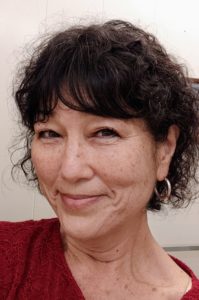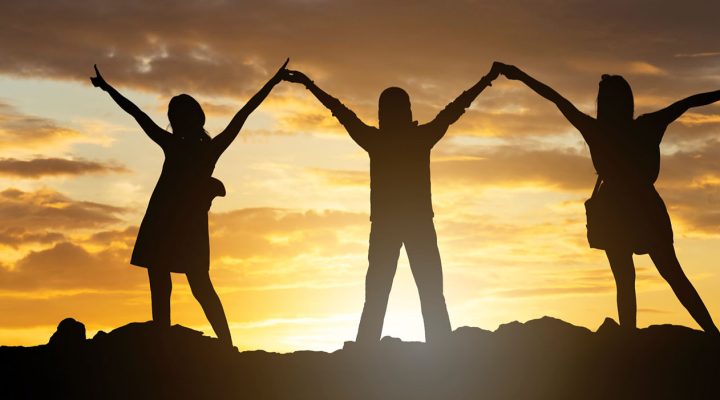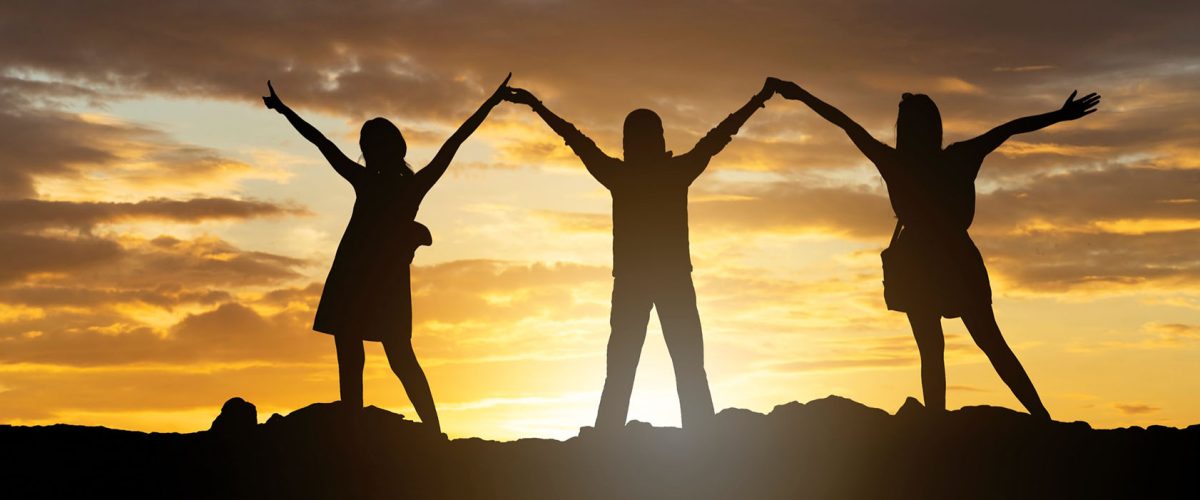In 1996, an LGBTQ activist in Hawai`i somehow convinced me that it would be a “great idea” to testify before the Senate Judiciary Committee. The committee was deciding on whether or not to bring an amendment defining marriage before Hawai`i voters.
I had no idea what I was getting myself into.
I should have had a clue when my own sister, who was an “out” lesbian, told me she was not going to join me. She said, “I’m not going to go down there and put myself through that! I KNOW the kinds of things people are going to be yelling and saying about me!”
“Omigoodness!” I thought. “She’s paranoid. People in Hawai`i aren’t like that!”

Danette Kong
I could not have been more mistaken. Throughout the hearing, I witnessed a disturbing spectacle of human behavior splattered before the committee. The threatening atmosphere was heated by mean-spiritedness, hate and outright lies that spewed forth from people who claimed they had a right to their opinions because they were Christians.
An ordained Southern Baptist minister at the time, I was terrified, because I knew my testimony was in direct contradiction to many of the (literally) screaming, angry, conservative Christians present. I asked myself, “Is this really such a good idea for me to be here?” I considered leaving my seat and fleeing that room.
But I reflected on the emotional pain my sister had endured throughout her life as a young lesbian. I remembered voices from the 1980s of persons with AIDS who had shared their lives with me when I was their chaplain — rejected by their families, fearful of allowing their health insurance companies knowledge of their diagnosis, fired after being outed, brutally attacked after leaving gay bars, afraid of losing their housing, no longer allowed to serve in positions of church leadership.
“The sound of her sobs echoed in my heart as I drove her home.”
Painfully, I recalled a young transgender woman who had been raped by a stranger. I witnessed (and reported) her being inhumanely derided and further traumatized by the police officers who escorted her to the emergency room for treatment. The sound of her sobs echoed in my heart as I drove her home.
And, I realized, this was part of my calling, as a straight person who recognizes the wrongs perpetrated against those who are LGBTQ.
We cannot expect those who are victimized by hateful attitudes and behavior to fight for changes on their own. It must be recognized as our battle, as well. We are called to hear the stories, to validate the pain, to underscore the treasure of these who have endured agonies foreign to our own experience.
We are summoned:
- To speak up.
- To change people’s hearts and minds.
- To rattle the cages of tradition and prejudice and instill justice.
- To give a voice to those who, for whatever reason, cannot speak, or who can no longer speak.
Since that day when I shakingly testified before the Judiciary Committee, I’ve had the opportunity to hear the stories of many more LGBTQ individuals. With the legalization of same-gender marriage, I’ve officiated over the union of several loving, same-gender couples — some of whom already had been in committed relationships for more than 30 years. How many straight couples do you know who can match that kind of commitment?
Former roommates, classmates, colleagues, church staff and members of my own `ohana have come out to me. And every single one of them has shared heartbreaking stories of how they have had to live guardedly, enduring physical, psychological and spiritual trauma. Some have had to address serious addictions to alcohol and drugs, which they turned to in an effort to alleviate their pain. Several underwent electric shock therapy in an effort to change their sexual orientation, and two were cruelly outed and discharged from military service.
Annual Transgender Day of Remembrance memorial services have been gut-wrenching. These gatherings remember transgender individuals who have been murdered, many simply because someone could not tolerate their existence. As part of these ceremonies, I joined others placing flower petals into gentle waves along the seashore, grieving over lives cut short from fully blooming with their own beauty and essence.
But there is hope beyond despair or trauma. As interim choral conductor for the Honolulu Men’s Chorus (precursor to the Gay Men’s Chorus of Honolulu) 13 years ago, I was privileged to witness, firsthand, the courage, faith and perseverance of these genuine and open-hearted men who came from a diversity of cultural and occupational backgrounds. They, members of the Dignity Honolulu congregation, and hundreds of other LGBTQ individuals, remain role models to me of living with integrity and generosity in the midst of struggle. My spiritual life has been deepened by the ministry of several colleagues who are insightful, gifted pastors, musicians and teachers — and who just happen to be in the LGBTQ community.
“Political forces have made it clear that terminating marriage equality and other LGBTQ rights is part of their far-reaching agenda.”
Political forces have made it clear that terminating marriage equality and other LGBTQ rights is part of their far-reaching agenda. They already have attacked the medical rights of transgender children and their parents, inhibited language used in classrooms, and forced the passage of callous laws regarding the use of school and public restrooms. Some religious communities unabashedly promote the hatred and mistreatment of persons who are LGBTQ.
We have seen that extremists are not hesitant to use violence and intimidation to achieve their goals. There have been, and will be, more times when speaking up will come with a great cost to our bodies, our reputations, our finances and our civil freedoms, even as straight allies.
Yes, there will be times when we are afraid to speak up or stand up or march. But the prophet Jeremiah reminds us that God says: “I’ll tell you what to say and you’ll say it. Don’t be afraid of a soul. I’ll be right there, looking after you.”
More than ever, we must work in solidarity with, and speak out on behalf of, our LGBTQ brothers and sisters — no matter how we identify, how scary things get or how dark society becomes. We must make our very lives and votes count to insure the protection of civil rights and safety for all.
Danette Kong is an ordained minister affiliated with the United Church of Christ. A retired health care chaplain, she currently serves as pianist for Keawala`i Congregational Church in Mākena, on the island of Maui. She is a founding member of the Shine Your Light Team and serves on the Baptist News Global board of directors.
Related articles:
Anti-LGBTQ legislation is bad science, bad politics and bad theology, and it’s going to get people killed | Analysis by Susan Shaw
My quest to find the word ‘homosexual’ in the Bible | Opinion by Ed Oxford
About disfellowshipping churches based on the ‘clear’ teaching of Scripture | Opinion by Dalen Jackson
‘Bad theology’ on LGBTQ discrimination ‘destroys lives,’ panelists say


